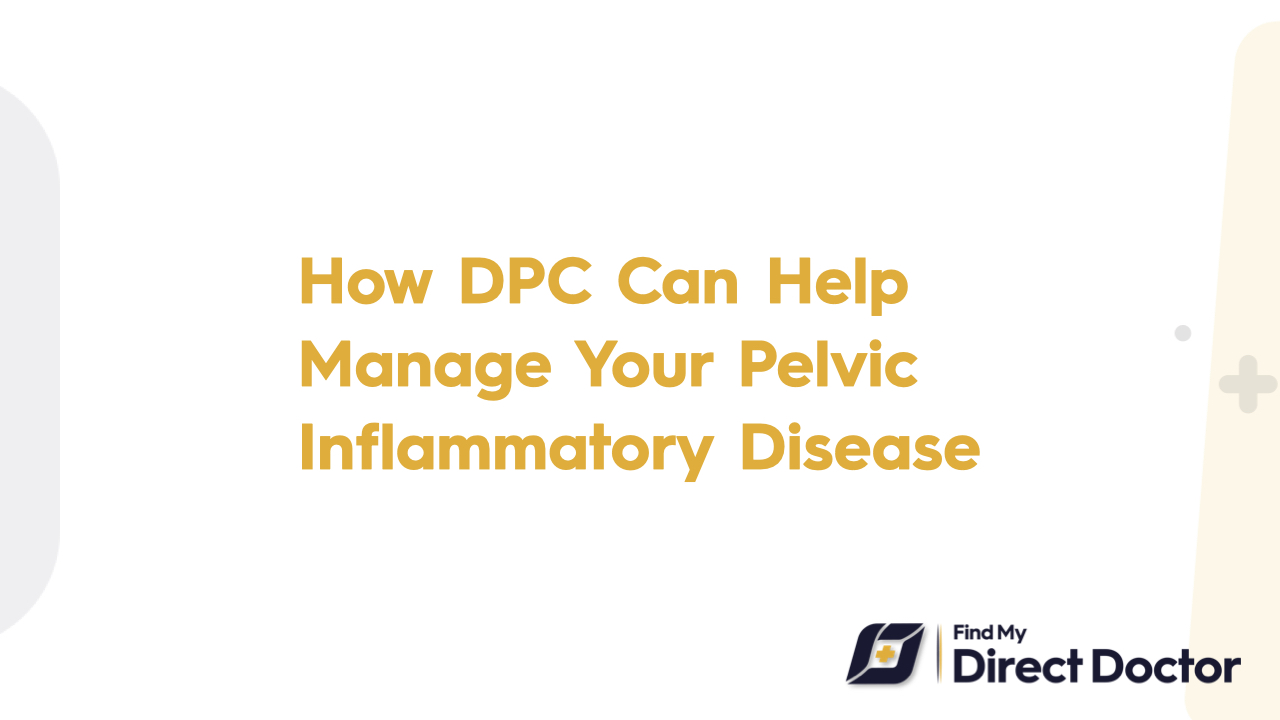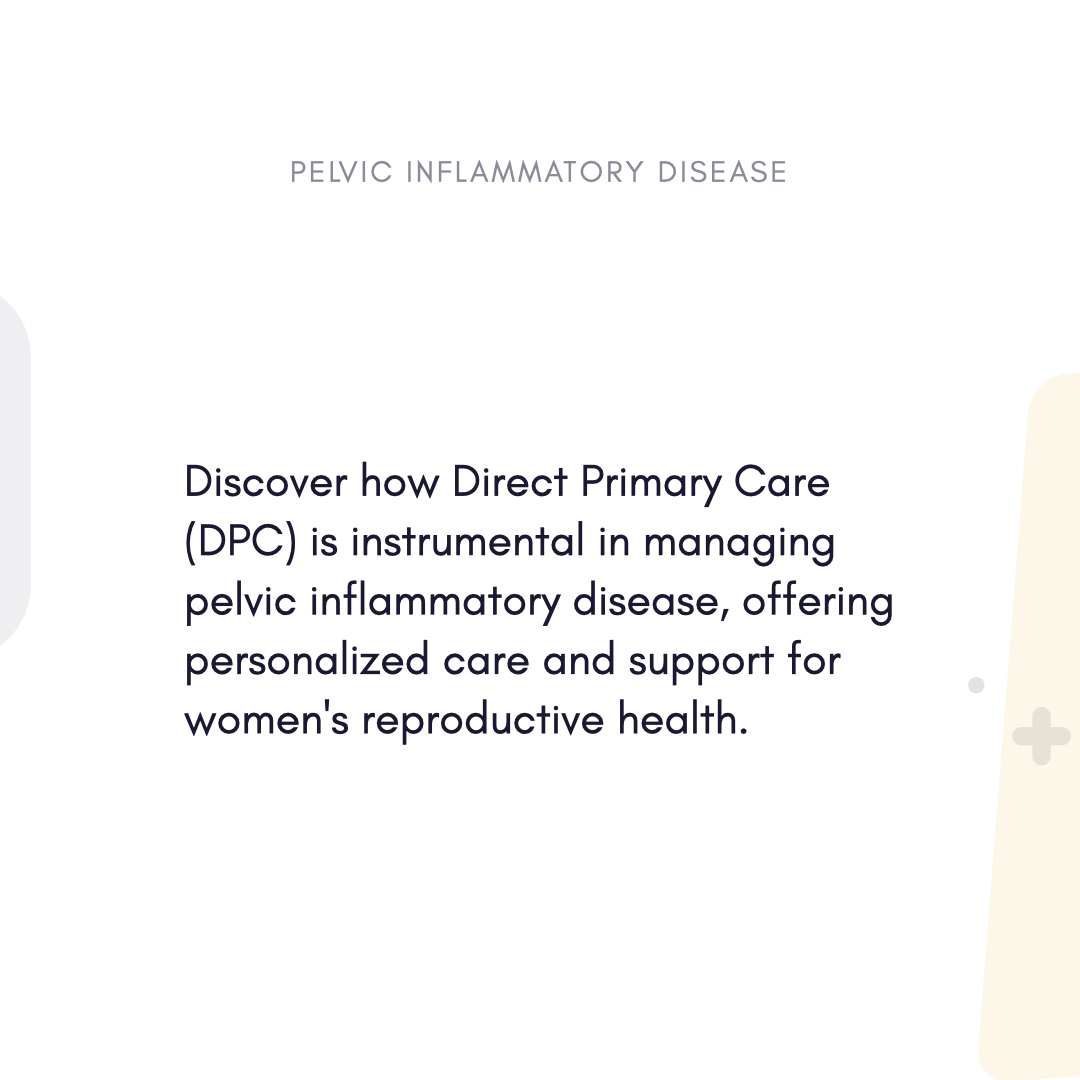Pelvic Inflammatory Disease (PID) and Direct Primary Care (DPC): Timely, Personalized Care to Protect Your Reproductive Health
A fever not going to go down. Sharp pelvic pain radiating with every step. For more than a million U.S. women diagnosed with pelvic inflammatory disease (PID) annually, this infection of the reproductive organs isn't only painful—if improperly controlled it can cause ectopic pregnancies, chronic pelvic pain, or infertility. Because of insurance issues or scattered follow-ups, traditional treatment sometimes delays. There is hope, though, as direct primary care (DPC) offers a proactive, patient-centered alliance to attack PID quickly and completely.

Appreciating PID, or Pelvic Inflammatory Disease
Often driven by untreated STIs like chlamydia or gonorrhea, PID is a polymicrobial infection of the uterus, fallopian tubes, or ovaries. Main symptoms consist in:
- Less pelvic or abdominal discomfort
- Aberrant bleeding or discharge from the vagina
- Uncomfortable urination or sex
- Temperature or chills
Delayed care presents certain hazards.
- Infertility (1 in 8 PID women)
- Long-term pelvic discomfort
- Ectopic pregnancy is
Early antibiotic treatment is, the CDC stresses, essential for avoiding long-term damage.
DPC Changes How PID Control in Management
Operating on a membership model usually 50–150 USD/month, Direct Primary Care (DPC) provides unlimited access to your physician for a set fee. For PID patients, this translates into no insurance delays, no co-pays, and a care plan as pressing as your symptoms.
1. Fast Diagnosis and Treatment Approach
The easily available DPC model guarantees:
- Same-day pelvic pain or abnormal discharge evaluations.
- Affordable testing includes pelvic ultrasounds, CRP bloodwork, cash-priced STI panels.
- Starting CDC-recommended regimens—such as ceftriaxone plus doxycycline—within hours, immediately antibiotics.
2. Customized, All-Around Treatment
DPC doctors design custom plans including:
- Expedited partner therapy (EPT) breaks the cycle of reinfection.
- Heat treatment for inflammation or NSAIDs help control pain.
- Exams should be repeated in follow-up to guarantee resolution and avoid problems.
3. Education and Preventive Holistically
- By means of STI screening—regular checks for asymptomatic infections—DPC lowers recurrence risks.
- Contraceptive counseling: IUD safety or barrier method advice.
- Mental health support: addressing chronic pain or anxiety about fertility.
DPC Advantages for PID Patients
1. Inappropriate Accessibility
- 24/7 telehealth to handle unexpected flare-ups or side effects from medications.
- For pelvic imaging or gynecologist visits, no referral delays.
- Teaching safe sexual practices and symptom recognition helps to prevent-oriented treatment.
Cost Transparency:
- With insurance, STI panels for as low as 50 USD instead of 300+ USD.
- Memberships in affordable, long-term support include counseling, follow-ups, and coordination of partner therapy.
- Usually, by avoiding ER visits and specialist co-pays, 500+ USD per PID episode is saved.
Personal Success Stories from Real Life
- Emma, 24, visited an urgent care with PID symptoms dismissed as menstrual cramps. Her DPC doctor confirmed chlamydia, ordered same-day labs, and began antibiotics. She gets quarterly STIs now and avoided tubal damage.
- Case 2: Aisha, 32, worried about her fertility since she had repeated PID. Her DPC provider taught pelvic floor exercises, connected her with a reproductive endocrinologist, and prescribed extended doxycycline. She conceived naturally in a year.
Frequently Asked Questions About Ovarian Cysts and DPC
- Can DPC handle emergencies or ruptured cysts?
- A: Is true. Often at discounted self-pay rates, DPC doctors triage symptoms right away, schedule urgent imaging, and coordinate ER care if necessary.
- DPC seems reasonable for long-term cyst management.
- A: Yes. By skipping co-pays, specialist fees, and imaging mark-ups, members save 1,000+ USD yearly.
- Q: Suppose I need a specialist like a gynecologist?
- A: DPC doctors fast-track referrals and negotiate discounted cash rates by collaborating with top local experts.
Why DPC Benefits Patients with Ovarian Cysts
DPC's patient-first approach aligns with ACOG recommendations and is supported by the American Academy of Family Physicians for:
- Stopping complications: Early identification of growing or complicated cysts.
- Teaching patients to track and prevent symptoms will empower them.
- Minimizing anxiety Ongoing support substitutes for "wait-and-see" uncertainty.
Save Your Future for Reproduction Right Now
PID has no need to rob your fertility or health. Using DPC helps you to find a partner who fights for your well-being everywhere, acts fast, and educates extensively.






